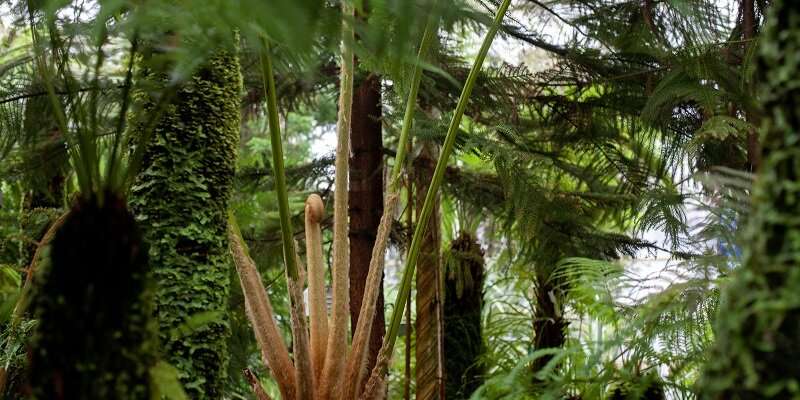Education system 'neglecting the importance of plants,' say researchers

People are becoming "disconnected from the botanical world" at a time when plants could help solve global environmental problems, warn a group of research scientists.
In a scientific paper published today in the journal Ecology and Evolution, they say the problem has been exacerbated by schools and universities in the UK reducing their teaching of basic plant science, including plant identification and ecology.
They describe a self-accelerating cycle which risks "...the extinction of botanical education," where biology is taught predominantly by people with research interests in animal science.
One of the authors says postgraduate students starting master's courses in the biological sciences lack basic plant identification skills.
An analysis of data from the Higher Education Statistics Agency reveals that botany, once a compulsory component of many university biology degrees and school programs, is "...now practically non-existent in the UK."
Between 2007 and 2019, just one student graduated in the botanical sciences for every 185 students from the other bioscience disciplines.
In schools, the biology curriculum has focused on the energy flows through plant communities, plant reproduction and plant anatomy with little time given to ecology and no time to developing plant identifications skills.
Seb Stroud, a Ph.D. researcher in the Hassell Lab based in the School of Biology at the University of Leeds and lead author in the study, says that "the result of the decline in botany education is a reduced awareness of plants among the public and professionals alike."
"The result of that is that we are seeing environmental projects that are not just ineffective but adding to environmental problems. Harnessed properly, there is no doubt that plants could provide solutions to the looming climate and ecological crises of the 21st Century."
"We ignore the opportunities presented to us by the botanical world at our own peril."
The paper cites examples of where a shortage of basic botany skills is hampering environmental improvements, such as the inappropriate planting of trees on peatbogs which can result in increased CO2 emissions by damaging these delicate habitats. Also, there have been various incidents of valuable wildflower meadows being threatened by careless tree planting or management.
The Scottish Government has highlighted the lack of a skilled workforce to implement nature-based solutions and argue that "nature literacy" must become a core skill for various professionals from planners, engineers, architects and educators as much as it does to farmers, foresters and fishermen.
The researchers also argue that the lack of an ability to correctly identify plants could exacerbate the problem of the spread of invasive non-native plants. In the US, for example, studies show that nearly two-thirds of species listed as invasive remain for sale.
To reverse the decline of botanical education, the researchers call for an assessment of botanical education around the world and an analysis of the skill gaps among scientists and professionals in the environmental and plant sectors.
They also call for a campaign to raise plant awareness across higher education and with the public to inform and engage people about plants.
In their conclusion, the research team note that "the extinction of botanical education will only continue to worsen unless we break the cycle of disconnection from the botanical world."
More information: Sebastian Stroud et al, The botanical education extinction and the fall of plant awareness, Ecology and Evolution (2022). DOI: 10.1002/ece3.9019
Journal information: Ecology and Evolution
Provided by University of Leeds



















